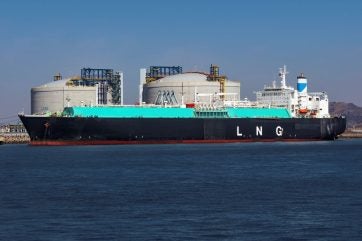
Global demand for LNG is estimated to increase by more than 50% by 2040 as industries’ switch from coal to gas accelerates in China and South Asia, Shell’s latest LNG outlook report said.
According to Shell’s latest estimates, global LNG trade reached 404mt in 2023, up from 397mt in 2022, with LNG demand expected to reach around 625–685mt a year in 2040.
“China is likely to dominate LNG demand growth this decade as its industry seeks to cut carbon emissions by switching from coal to gas,” said Steve Hill, executive vice-president for Shell Energy.
In the next ten years, the report said that the decrease in local gas production in certain regions of South and South East Asia could lead to a rise in LNG demand as the region needs the fuel for gas-powered power plants or manufacturing. It also pushed the need for significant investments in gas import infrastructure in the region.
The Shell LNG Outlook 2024 report also shows that in countries with high levels of renewable energy in their power mix, gas complements wind and solar power, offering both short-term flexibility and long-term supply security.
“With China’s coal-based steel sector accounting for more emissions than the total emissions of the UK, Germany and Turkey combined, gas has an essential role to play in tackling one of the world’s biggest sources of carbon emissions and local air pollution,” Hill said.
The report said that European LNG imports remained at the same level as 2022 despite a decline in the region’s gas demand in 2023. Despite a well-supplied global market in 2023, the reduced supply of Russian pipeline gas to Europe and limited LNG supply growth over the past year have kept the global gas market tight, it said.



